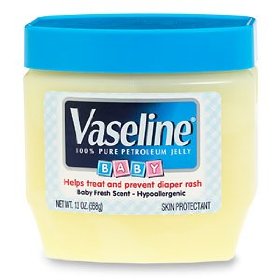
 Did you know that your soaps and shampoos could be endangering your health? Although cancer patients may believe that by keeping themselves clean they’re keeping germs at bay, the majority of household and cosmetic soaps on the market contain dangerous petroleums and petroleum by-products (like paraffin gel or petroleum jelly), which can have severely negative effects on overall health.
Did you know that your soaps and shampoos could be endangering your health? Although cancer patients may believe that by keeping themselves clean they’re keeping germs at bay, the majority of household and cosmetic soaps on the market contain dangerous petroleums and petroleum by-products (like paraffin gel or petroleum jelly), which can have severely negative effects on overall health.
Contributing author to HealthTruthRevealed.com Greg Ciola explains the danger petroleum can present in the work place (as well as in our bathroom cabinets): “Auto mechanics are warned that long-term exposure to petroleum products can cause skin cancer and other skin maladies…yet we’re led to believe by the cosmetics industry that these products clean and moisturize your skin.” Unfortunately, many physicians continue to recommend petroleum-based products (such as moisturizing creams or ointments) to cancer patients, without realizing the dangers. The author of the blog “Avoiding Cancer One Day At a Time” adds that if petroleum products use fossil fuels (which accumulate and damage our environment), why do we want to put those ingredients on our skin?
Recent studies reported by the Chemtox website suggest stunning side effects of toxic petroleum ingredients: “Petroleum based chemicals are being found to cause significant attritional effects to the nervous system and immune system after prolonged exposure. Illnesses identified in the medical research include adult and child cancers, numerous neurological disorders, immune system weakening, autoimmune disorders [and more].”
An additional study performed by the Susan Lehman Cullman Labratory for Cancer Research found that mice-that had contracted skin cancer from weeks of ultraviolet light exposure-increased their tumor rate from 24% to 95% in 17 weeks after consistent applications of name-brand moisturizers. (Placebo creams had no effect.) Researchers believe that two of the petroleum-derived ingredients found in the moisturizers (sodium lauryl sulfate and mineral oil) promote UVB-induced tumor growth. This means that although many cancer sufferers and fighters believe they are helping their skin by treating with daily moisturizers, they may actually be harming themselves with toxic chemicals.
Petroleum ingredients appear in many common cosmetic products and cleansers, and can be listed as any number of petroleum derivatives. By-products most commonly include mineral oil, paraffin gel, propylene glycol, or PVP/VA Copolymere. Research done by the Environmental Working Group adds that, “Many of the cosmetic industry’s chemical safety assessments reveal that common petroleum-based cosmetic ingredients can be contaminated with a cancer-causing impurity called 1,4-dioxane.” According to natural-product producer Aurora Group, petroleum can be used in everything from lip gloss (as petroleum oil) to nail polish (as solvents like toluene).
Luckily, there are safe alternatives available, so try researching organic and all-natural moisturizing products that are free from chemical and toxic ingredients. The best alternatives to petroleum-based formulas are natural butters like shea and coco; oils like olive, castor and jojoba; and waxes like beeswax and caranuba. We formulated our CV Skinlabs Restorative Skin Balm for this reason and its a huge miracle worker in the medical world or click here to make your own petroleum jelly alternative at home (only 3 ingredients needed). Read labels before purchasing a product, or try researching cosmetic brands at the Environmental Working Group’s website. Check out our list of toxic ingredients to avoid here.
* Do you look out for petroleum in your beauty products? How do you avoid this ingredient, or what do you recommend instead?
Photo courtesy of Amazon.

